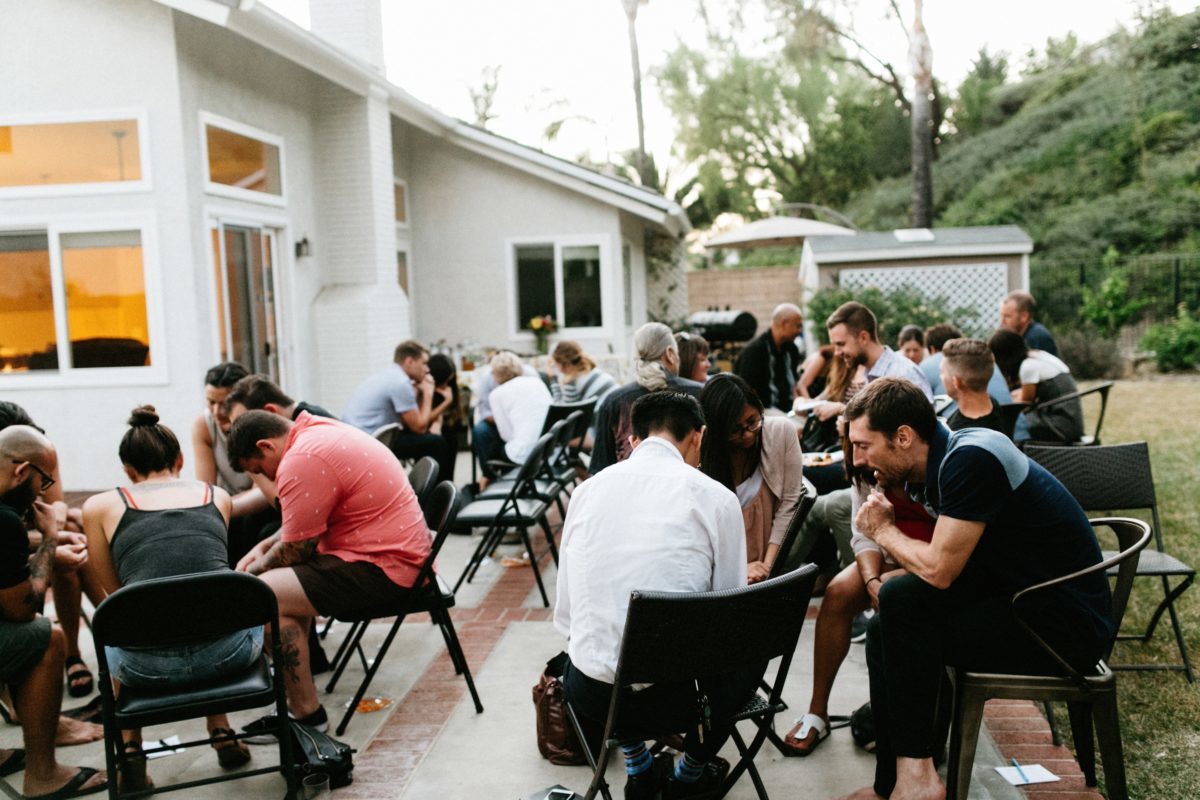“Please Mommy! I promise I won’t get sick. I just want a couple.”
My three-year-old daughter peered at me with longing eyes as she gripped the box of cookies in her hand. We had just gotten home from a birthday party where she indulged in enough sugary treats to put her father to shame (and that’s difficult to do).
At that moment, I knew that this was going to end badly for her if I allowed it. I knew that there would come the point of no return when her stomach would begin to reject the copious amounts of unhealthy food, and regret would eventually set in. I knew because I had been there myself. Experience had allowed me to see what my daughter was blinded to: too much sugar can eventually lead to an awful tummy ache.
Parenting is filled with these types of conversations. Having a few more years of living under my belt has allowed me to see things that my daughter, with her limited experience, is still figuring out.
In the same way my children need me to help them see the world through my eyes of experience, church planters need those who have gone before them to do the same.
Veteran church planters play a vital role in the pioneering effort of church planting because they have trodden the same paths, worked with similar soil, and waged war against the same enemy. Their years of pioneering work have allowed them to see through the eyes of experience what the new church planter cannot. So when my husband and I began the process of starting a new gospel work in our community, we knew we needed the involvement of men and women like this.
There are three areas that veteran church planters know to explore in a pioneer church planter: the hands, the head, and the heart.
The Hands of the Planter
Veterans know the task at hand. They have walked this road before, they are familiar with every unexpected curve and uphill climb, and they know the challenges ahead. They know the entrepreneurial aptitude, the creative energy, the grit, and the hustle that is required of the planter. They know, more than anyone else, what sacrifices will be made, how the journey will affect the family and the amount of time and energy that will be devoted to the expedition.
The Head of the Church Planter
Veterans also know how essential the unadulterated Word of God is in the pioneering effort. They know that for the gospel to take root and produce fruit, it must be planted in good soil and nourished by the truth. The mind of the planter must be equipped to handle the word of God clearly, articulately, appropriately, reverently, and powerfully. Veteran church planters know that the only way to cultivate a vibrant, thriving, abundant gospel movement is through the Spirit of God at work through the Word of God.
The Heart of the Church Planter
Lastly, veteran church planters know the battle ahead. They have been waging war with the same spiritual enemy for years. This enemy is after one thing: the heart. Veterans are familiar with his schemes; they know how he capitalizes on weakness and preys on the weary. Through years of experience, the veteran has learned the value of a good set of armor, the necessity to prepare for the battle ahead, and how to depend on the only one who can provide help.
Planters that are just setting out need men like this to help them consider if they are truly called to the task. Not everyone is, and this is why assessment matters.
When my husband and I began going through the Acts 29 assessment process, one thing was made increasingly evident to me—not only did Acts 29 care about planting churches, they also cared very deeply about the right kind of men shepherding those flocks.
As the wife of a church planter, this gave me the encouragement I needed to continue in our church planting journey with joy. I had observed a calling to pastoral ministry in my husband for years. I had seen his deep and unwavering desire to win souls for God’s glory, to speak the truth in love, to eloquently and reverently preach the Word, and authentically depend upon God for life and godliness. But I have to admit, although I loved the local church and wanted to give my life to supporting the work of church planting, and although I trusted my husband and even more so my God, I felt a lot of fear. I had read enough headlines and had been personally affected by unhealthy leadership enough to know that we could be setting ourselves up for a world of hurt. My fears were attached to the unsettling idea that men who had gone before us had failed.
The reality that decent men could make poor decisions that could lead to great failure haunted me.
As we moved forward in the assessment process, I realized one critical thing; my husband was not doing this alone. He had a group of men who were committed to unearthing his weaknesses, exposing his sin, challenging his wisdom, testing his gifts, and exploring his fitness as a pioneer in the church planting effort.
When our assessment came to a close, my husband and I felt intimately known in ways that only our closest friends know us. We felt incredibly safe, knowing that this process was put in place for both our protection and the church’s. Ultimately we were left rejoicing in the joy we had in the gospel.
Obviously, one assessment can’t possibly guarantee that the planter is immune to failure. Not one of us is. But it did reveal that the type of men Acts 29 was pursuing, partnering with, and supporting were self-aware, emotionally healthy, spiritually zealous, theologically astute leaders. These are the kind of men we want to be partnering with, the kind of the men we want to learn from, and when the time is right—the kind of men we want to invest into as we plant churches that plant churches to the glory of God.










